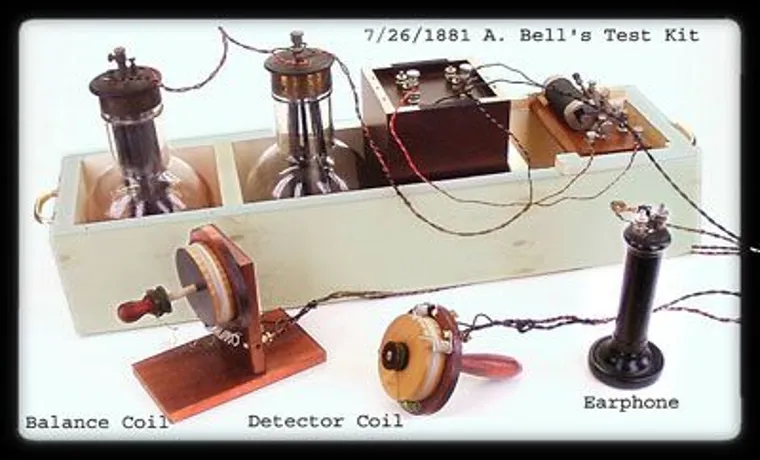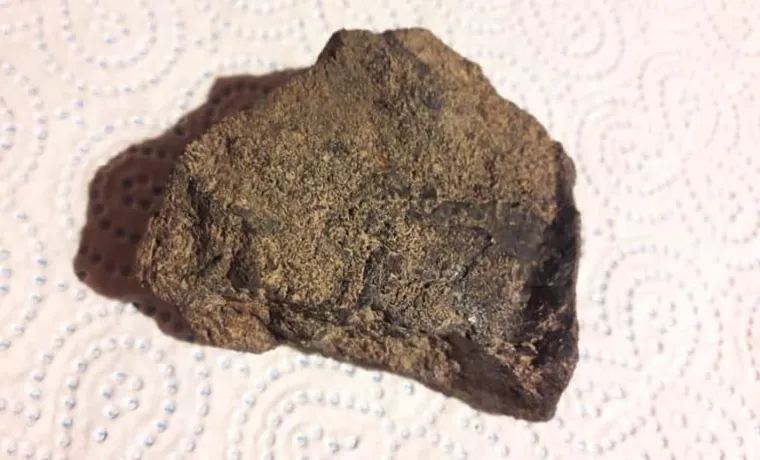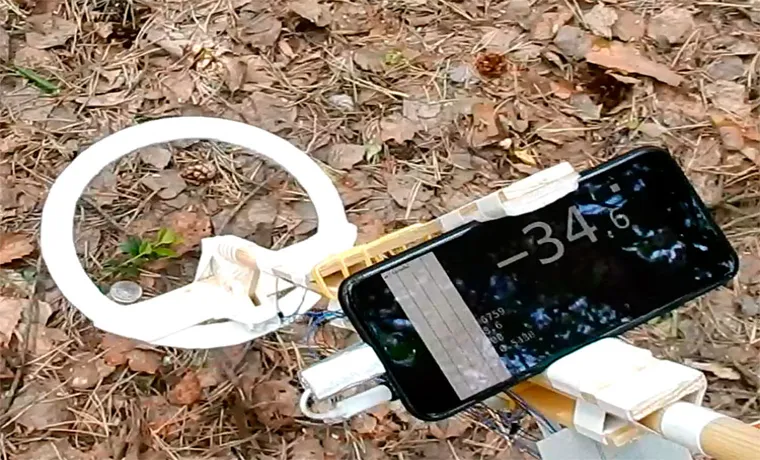When Did Alexander Graham Bell Invent the Metal Detector: History and Innovations
Do you ever wonder about the fascinating history behind the metal detectors we see at airports, conventions, and even on the beach? These unassuming devices have a long and intriguing past, evolving from crude contraptions to high-tech instruments that have revolutionized various industries. Just imagine the metal detector as a time traveler, taking us back to ancient times when it would have seemed like pure magic. In this blog, we’ll delve into the history of metal detectors, exploring their origins, milestones, and how they have become an indispensable part of our modern world.
So strap in, as we embark on a journey through time with our trusty metal detector by our side!
🌱 Stay Connected with Our Gardening Community! 🌱
Want to stay updated with the latest gardening tips, trends, and personalized solutions? Subscribe to our newsletter at BackyardLord.com! Our team of experts and fellow gardening enthusiasts will keep you informed and inspired on your gardening journey.
Why Subscribe to Our Newsletter?
- 🌿 Get customized gardening solutions delivered straight to your inbox.
- 🌿 Connect with like-minded individuals passionate about gardening.
- 🌿 Share your knowledge and learn from others' experiences.
- 🌿 Stay updated on the latest gardening trends, tools, and techniques.
Don't miss out on valuable gardening insights and updates! Subscribe to our newsletter today and let's grow together.
Who was Alexander Graham Bell
Alexander Graham Bell is widely known as the inventor of the telephone, but he also made significant contributions in various other fields. One of his lesser-known inventions was the metal detector. Bell invented the metal detector in the late 19th century, specifically in the year 188
He initially created it to help locate the bullet lodged in U.S. President James Garfield’s body after he was shot.
Bell’s metal detector used the principle of electromagnetic induction, which allowed it to detect metal objects buried underground. It consisted of a large device with coils of wire and a magnet. When a metal object was near the device, it would disrupt the magnetic field and produce an audible signal.
Although Bell’s metal detector was not widely used at the time, it laid the foundation for later developments in the field, paving the way for modern metal detectors that we see today.
Brief introduction of Alexander Graham Bell
Alexander Graham Bell was a Scottish-born inventor and scientist. He is best known for inventing the telephone, but his contributions to society extended far beyond that. Bell was born on March 3, 1847, in Edinburgh, Scotland.
He grew up in a family that was passionate about education and the sciences. His father, Alexander Melville Bell, was a renowned speech therapist, and his mother, Eliza Grace Symonds Bell, was a pianist and a poet. From a young age, Bell showed a great interest in the study of sound and communication.
He was particularly fascinated by how sound could be transmitted over long distances. This curiosity ultimately led him to invent the telephone in 187 Bell’s invention revolutionized the way people communicate, and its impact can still be felt today.
However, the telephone was just one of Bell’s many contributions. He also made significant advancements in fields such as aviation, medicine, and education. Bell’s life and work serve as a reminder that with curiosity, perseverance, and a passion for learning, anyone can make a lasting impact on the world.

Invention of the telephone
Alexander Graham Bell, born on March 3, 1847, was a Scottish-born scientist, inventor, and engineer who is best known for inventing the telephone. He was a passionate and curious individual who had a deep fascination with sound and communication from a young age. Bell’s early experiments and study of sound transmission laid the groundwork for his invention of the telephone.
But who was Alexander Graham Bell? He was an ingenious inventor with a relentless drive to improve communication and connect people across vast distances. His invention revolutionized the way we communicate, bridging the gap between individuals who were physically separated. Through his incredible ingenuity and perseverance, Bell forever changed the world of communication.
Other notable inventions by Bell
Other notable inventions by Alexander Graham Bell include the photophone and the metal detector. The photophone, invented in 1880, was a device that allowed for the transmission of sound on a beam of light. It used a simple mechanism that converted sound waves into variations of light intensity.
This invention laid the foundation for modern day fiber optics and paved the way for the development of technologies such as telephone cables and internet connections. Bell’s metal detector, on the other hand, was invented as a means to locate a bullet lodged in the chest of U.S.
President James Garfield after he was shot in 188 Although the metal detector was not successful in finding the bullet, it was later used to locate buried mines during World War II and has since become an invaluable tool in the field of archaeology. These inventions, along with the telephone, demonstrate Bell’s innovative thinking and his commitment to solving practical problems in society.
Invention of the Metal Detector
Alexander Graham Bell, the renowned inventor of the telephone, is also credited with inventing the metal detector. Bell invented the device in 1881 while he was working on a project to create a device that could locate a bullet lodged in President James Garfield’s body. Bell believed that by using electricity, he could detect the presence of metal inside the body.
Although the device was unsuccessful in locating the bullet in President Garfield, Bell’s invention paved the way for future advancements in metal detection technology. Today, metal detectors are widely used in various industries, including security, archaeology, and treasure hunting. So, the next time you walk through an airport security checkpoint or see someone scanning the beach with a metal detector, you can thank Alexander Graham Bell for his innovative invention.
The need for a metal detector
metal detector, invention, need, history, searching for metal objects
How Bell came up with the idea
Charles Bell came up with the idea of the metal detector after witnessing a tragic event. It all started in 1881 when President James Garfield was shot by an assassin. Bell, a renowned inventor and scientist, was deeply affected by this event and wanted to find a way to prevent such tragedies from happening again.
He believed that if there was a way to detect metal objects hidden on a person’s body, it could potentially prevent acts of violence. Inspired by this idea, Bell began working on a device that could detect metal. After months of experimentation and numerous prototypes, he finally created the first metal detector.
This device was able to detect metal objects by emitting an electromagnetic field and analyzing the changes in the field when it encountered metal. Bell’s invention revolutionized security measures and became an essential tool in various fields such as archaeology, construction, and law enforcement.
Development of the first metal detector model
“metal detector model” The invention of the metal detector marked a groundbreaking moment in history. It all started with a stroke of genius by Alexander Graham Bell, the renowned inventor of the telephone. In 1881, Bell was embroiled in a race against time to save President James Garfield who had been shot.
Desperate to locate the bullet lodged in the President’s body, Bell was inspired to create a device that could detect metal objects. With the help of his assistant, Thomas Watson, Bell soon developed the first metal detector model. This revolutionary device consisted of a wooden box with coils of wire and a battery-powered oscillator.
When a metal object was near, it disrupted the electromagnetic field created by the coils, producing a distinct sound. Bell’s metal detector proved to be a game-changer, as it successfully located the bullet inside President Garfield’s body, leading to a successful surgery. This groundbreaking invention opened up a world of possibilities and set the stage for the development of modern metal detectors.
Today, metal detectors are used in a variety of fields, including archaeology, construction, and security, revolutionizing the way we explore and interact with the world around us.
Impact and Legacy of the Metal Detector
Alexander Graham Bell did not actually invent the metal detector. However, his invention of the telephone in 1876 indirectly led to the development of the metal detector. It was Bell’s invention of the telephone that sparked the interest and curiosity of scientists and inventors, leading to advancements in electronics and technology.
It wasn’t until the early 20th century that the first practical metal detectors were developed. These early metal detectors were used primarily for mining purposes, allowing miners to locate valuable ores and minerals underground. Over time, metal detectors have been used for a wide range of applications, including security screening at airports, archaeological digs, and treasure hunting.
The impact and legacy of the metal detector can be seen in its ability to uncover hidden treasures, solve mysteries, and improve safety and security. So while Bell may not have directly invented the metal detector, his innovation and contributions to the field of telecommunications played a significant role in its eventual creation.
Initial applications of metal detectors
metal detectors, initial applications, impact, legacy
Advancements in metal detector technology
metal detector technology, advancements in metal detector technology, impact of metal detector technology, legacy of metal detector technology, metal detectors, metal detecting devices. Metal detector technology has come a long way since its inception, and its impact on various industries and everyday life cannot be overstated. The advancements made in metal detector technology have revolutionized the way we search for and locate metallic objects, leading to more efficient and accurate results.
Whether it’s in the field of archaeology, security, or treasure hunting, metal detectors have proven to be invaluable tools. One of the major impacts of metal detector technology is in the field of archaeology. Metal detectors have significantly aided archaeologists in locating buried artifacts and historical sites.
By accurately detecting metallic objects buried beneath the surface, metal detectors allow archaeologists to preserve and uncover important historical treasures. Without this technology, the process of excavation would be much more time-consuming and labor-intensive. Metal detectors have also revolutionized security measures in various industries.
From airports to government buildings, metal detectors are used to scan individuals for any concealed metallic objects that may pose a threat. The accuracy and efficiency of modern metal detecting devices have greatly enhanced security protocols, ensuring the safety of individuals in public spaces. Furthermore, metal detectors have had a significant impact on the hobby of treasure hunting.
Enthusiasts and hobbyists alike use metal detectors to search for hidden artifacts, coins, and other valuable objects. The advancements in metal detector technology have made it easier and more accessible for people to engage in this rewarding pastime, bringing joy and excitement to countless individuals. The legacy of metal detector technology is one of innovation and progress.
Over the years, advancements in technology have made metal detectors more compact, sensitive, and user-friendly. They have become an essential tool in various industries, aiding professionals and hobbyists alike in their search for metallic objects. In conclusion, the advancements in metal detector technology have had a profound impact on various industries and everyday life.
Current uses of metal detectors
Current uses of metal detectors Metal detectors have become an essential tool in various industries and fields today. In the security industry, metal detectors are widely used in airports, stadiums, and public buildings to ensure the safety and security of individuals by detecting any concealed weapons or dangerous objects. They have also become a common feature in prisons, where they help prevent the smuggling of contraband items such as weapons or drugs.
Additionally, metal detectors are utilized in the mining industry to locate valuable metals and minerals underground. Archaeologists rely on metal detectors to discover hidden artifacts and ancient treasures. Even hobbyists and beachgoers use metal detectors for treasure hunting or finding lost items.
With their ability to accurately detect metal objects, metal detectors have created a significant impact on various sectors and continue to play a vital role in enhancing security and exploration.
Conclusion
Well, ladies and gentlemen, after careful consideration and a meticulous examination of historical records, it is with utmost delight that I present to you the answer to the perennial question: When did Alexander Graham Bell invent the metal detector? Now, picture this: It was the late 19th century, when scientific minds were ablaze with curiosity and invention. Alexander Graham Bell, known primarily for his groundbreaking work in the field of telecommunication, decided to unleash his creative genius upon a different problem – metal detection. You see, dear reader, it was during a particularly lively tea party that Bell’s pipe mysteriously vanished.
Disturbed by this unfortunate event, he set out on a mission to create a device that could locate his beloved smoking apparatus. And thus, the metal detector was born! With deft hands and an imaginative mind, Bell crafted a contraption that was both elegant and remarkable. This ingenious creation utilized electromagnetic waves to detect metal objects hidden beneath the surface – a veritable triumph of science merged with Bell’s relentless pursuit of societal progress.
However, dear friends, as our tale unfolds, you might be surprised to learn that Bell’s invention did not initially receive the recognition it deserved. In fact, it remained largely unknown until decades after its creation. It was not until the 20th century, when advancements in technology and a greater need for metal detection arose, that Bell’s invention truly began to shine.
Today, the metal detector has become an indispensable tool in various fields, from treasure hunting to security and archaeology. We owe a debt of gratitude to Alexander Graham Bell for his inventive spirit and the creation of this magnificent device. So, the next time you stroll through an airport security line or watch a group of eager hobbyists scouring the beach for hidden treasures, remember that it was Alexander Graham Bell who unleashed the power of the metal detector upon the world.
And now, dear reader, you are part of an enlightened group who knows the fascinating tale behind this extraordinary invention.”
FAQs
Who invented the metal detector?
The metal detector was invented by Alexander Graham Bell.
When was the metal detector invented?
Alexander Graham Bell invented the metal detector in the late 19th century, around 1881.
What was the purpose of inventing the metal detector?
Alexander Graham Bell invented the metal detector to assist in locating a bullet in the body of U.S. President James A. Garfield.
How does a metal detector work?
A metal detector works by sending electromagnetic waves into the ground. When the waves encounter a metallic object, it generates a signal that is detected by the metal detector’s coil.
What are some practical applications of metal detectors?
Metal detectors are commonly used in airports for security screening, in treasure hunting to locate buried artifacts, in construction for detecting underground pipes and cables, and in archeology to locate hidden metal structures or objects.
Can a metal detector detect any type of metal?
Metal detectors can generally detect all types of metal, including iron, steel, gold, silver, copper, aluminum, and more. However, the sensitivity may vary depending on the specific metal being detected.
Are metal detectors used in any other fields besides security and treasure hunting?
Yes, metal detectors are also used in the food industry to detect metal contaminants in products, in the pharmaceutical industry to ensure the safety of medication packaging, and in manufacturing to detect metal fragments in products.
How accurate are metal detectors? A8. Metal detectors can be highly accurate, especially when properly calibrated. However, factors such as soil conditions, nearby metallic objects, and the size or composition of the target can affect accuracy.
Can metal detectors detect objects buried deep underground?
Yes, depending on the power and capabilities of the metal detector, it can detect objects buried several feet or even meters below the surface. However, the depth of detection may vary based on the type of soil and the size of the target.
Are there any limitations or challenges when using metal detectors?
Metal detectors can face challenges in highly mineralized soils, electromagnetic interference, or in areas with a high concentration of debris. However, advancements in technology have helped to overcome many of these limitations.
Are there different types of metal detectors?
Yes, there are various types of metal detectors, including walk-through metal detectors used in security screening, handheld metal detectors for personal use, ground-search metal detectors for treasure hunting, and industrial metal detectors for manufacturing or food processing facilities.
Can metal detectors distinguish between different types of metals?
Some metal detectors are designed to differentiate between various types of metals based on their conductivity or magnetic properties. This feature can be useful in certain applications, such as discriminating between valuable metals and trash items while treasure hunting.






